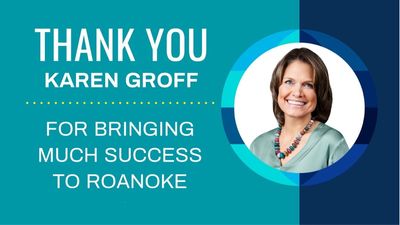July 18, 2014 | Industry Insights
Logistics Providers, Transportation Firms: Mitigating EPL Exposures

Logistics Providers, Transportation Firms: Mitigating EPL Exposures
All employers of any size across every industry sector, including the logistics and transportation industries, are vulnerable to employee-related lawsuits arising from alleged employment practices violations. This is particularly so in an environment in which the EEOC (Equal Employment Opportunity Commission) has stepped up its actions to investigate allegations of wrongful termination, discrimination and other violations. This has made robust employment Best Practices, regulatory compliance, and Employment Practices Liability Insurance (EPLI) so critical today.
Employment Practices in the Forefront
In December 2012, the EEOC established and approved its Strategic Enforcement Plan (SEP) for fiscal years 2013-2016. The plan was designed to set priorities and integrate all components of the agency’s private, public, and federal sector enforcement. When the plan was first released, the EEOC explained that SEP’s purpose is “to focus and coordinate the agency’s programs to have a sustainable impact in reducing and deterring discriminatory practices in the workplace.” Since its implementation, we have seen increasingly more suits being brought against employers including in the area of wage-and-hour disputes, gender, racial, and disability discrimination, and harassment.
Indeed, employers are very concerned about litigation involving employment practices and rightly so. In findings released earlier this year by global legal practice Norton Rose Fulbright for its Annual Litigation Trends Survey, employment disputes along with contract matters represented the most common litigation issues U.S. companies face. A total of 48% of survey respondents said that labor and employment issues topped the number of cases their organizations faced in 2013, and 36% said contract issues were most numerous. Norton Rose Fulbright’s surveyed senior corporate counsel executives representing a broad range of industries from large, medium and small-sized companies to determine litigation trends.
Furthermore, most recently, law firm Seyfarth Shaw L.L.P. released findings from a study it conducted of federal wage-and-hour lawsuits filed under the Fair Labor Standards Act (FSLA). The FLSA establishes minimum wage, overtime pay, recordkeeping, and youth employment standards affecting employees in the private sector and in Federal, State, and local governments. The findings revealed that these types of lawsuits reached a record high in 2013-2014. There were 8,126 federal wage-and-hour lawsuits filed between April 1, 2013 and March 31, 2014. According to Seyfarth Shaw, the number of filings indicates nearly a 5% increase from the same period a year ago, when 7,764 cases were filed.
Background checks are also adding to the complex issue of employment practices. While important in hiring the right people, especially when it comes to logistics service providers, there are compliance issues for conducting background checks that must be followed. In fact, earlier this year, the EEOC and U.S. Federal Trade Commission (FTC) co-published two technical assistance documents that explain how the agencies’ respective laws apply to background checks performed for employment purposes. Generally, both agencies emphasized that employers need written permission from job applicants before getting background reports on them from vendors that provide this service. The agencies also reaffirm that it is illegal to discriminate based on a person’s race, color, national origin, sex, religion, age (40 or older), disability, or genetic information, including family medical history, when requesting or using background information for employment, regardless of where the information was obtained. What’s more, both agencies made clear to job applicants that it isn’t illegal for potential employers to ask about their background, as long as the employer does not unlawfully discriminate. However, when people are turned down for a job or denied a promotion based on information in their background reports, they have the right to review the reports for accuracy.
Implementing Clear Policies and Procedures
As you can see, the area of employment practices can be a complicated one, which is why it’s important for firms to adopt strong workplace policies and procedures. These should include:
- Hiring Practices: A well-defined written selection and hiring process is important, as it will help to minimize the potential for discrimination, or the appearance of discrimination, when filling vacant job positions in an organization. A clear and concise employment process will assist in the selection of the best candidate for the open position and should clearly communicate the basics of that process to internal and external candidates.
- Job Descriptions: Each position should clearly define expectations of skills and performance.
- Screening Process: Develop a screening and hiring program to vet unsuitable candidates before calling them to interview in person.
- Background Checks: Once again, be sure your company is in compliance with regulations when conducting employee background checks.
- Employee Manual: Develop and keep an updated employee handbook detailing your company’s employment policies and procedures for disciplining or terminating an employee. Make sure all employees read the handbook and sign a statement to that effect.
- Company’s Philosophy: Ensure that all employees understand that your organization has a zero tolerance policy regarding discrimination, substance abuse and any form of harassment. Make sure an open-door policy exists whereby employees feel comfortable to report infractions without fear of retribution.
- Documentation: Create an effective record-keeping system to document employee issues as they arise, and what the company did to resolve those issues.
Employment Practices Insurance
Equally important in addressing employment practices issues is securing EPLI insurance that addresses your company’s needs. EPLI provides coverage for legal defense fees, settlements out of court, and damages assessed by the court. Coverage applies to most claims of harassment, discrimination, wrongful terminations, breach of contract, and workplace misconduct. There are different types of policies so it’s important that you review your coverage carefully. For example, some policies may also cover the costs of investigations and legal fees associated with regulatory actions; some policies include a sublimit for wage-and-hour disputes.
At Roanoke Trade, we specialize in insuring logistics service providers and provide a wide range of coverages including Employment Practices Liability. We would be happy to review your insurance policy and discuss ways to mitigate your risks in this area. You can reach us at 1.800.ROANOKE.
Sources: EEOC, Norton Rose Fulbright, Seywarth Shaw, L.L.P., FTC













